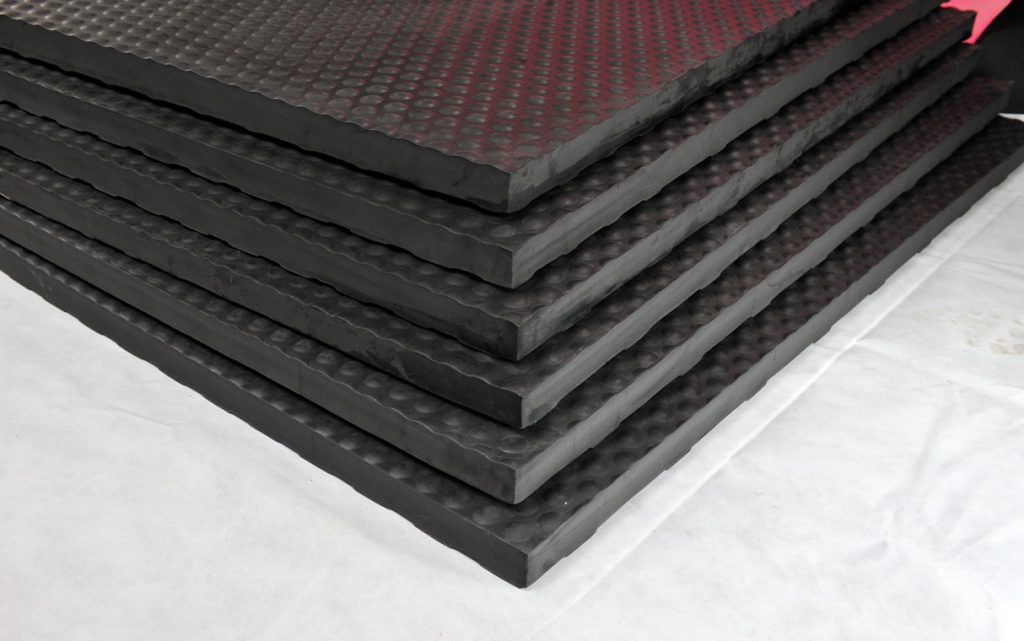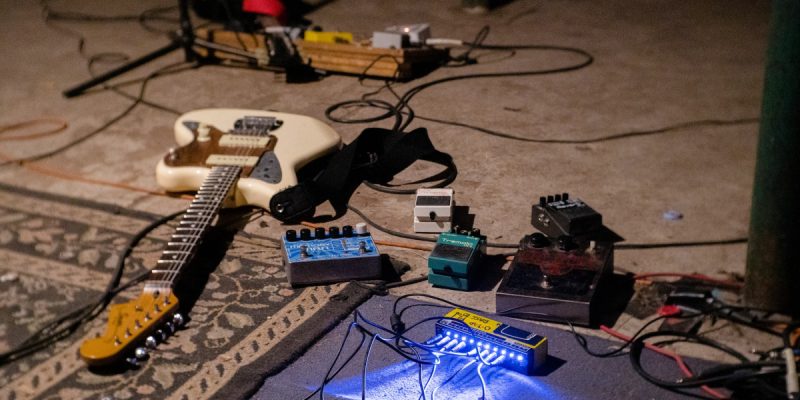Whether it’s band practice or noisy DIY, or any other activity that may disturb the neighbours, there are plenty of reasons to want to soundproof garage. Read on to find out how to achieve this.
Why Soundproof a Garage?
There are several fantastic benefits to soundproofing your garage:
Noise reduction from the inside
Great for building a good relationship with neighbours – if your neighbours aren’t being disturbed when you’re working on your vehicle, lifting weights in your garage gym or practicing with your band, your relationship will be much better.
Sounds of power tools, weights clanging, or a turbo trainer running can be quite loud and may disturb your family too, so it’s better to keep the noise within the space.
Reduces distractions
Soundproofing your garage doesn’t just stop noise from getting out, it also stops noise from getting in, helping you to focus more when in your garage office or workshop.
Improves sound quality
For the garage musicians, podcasters, or if you’ve converted your garage into a home cinema, audio soundproofing your garage studio walls locks the sound into the space and enhances the sound quality, preventing outside noises from interfering.
Improve privacy
With a soundproof garage, you’ll have the added benefit of privacy, so if you do happen to make any noise, you can have peace of mind that it’s without any awkwardness.
Increase resale value
If you ever decide to sell your home, having a soundproof garage can increase its appeal to potential buyers, especially those who are share your passions or might have similar requirements musicians, home gym enthusiasts, or do-it-yourself aficionados.
Sound Proofing Windows
Windows are often the biggest culprit when it comes to sound escaping the garage, as they tend to be the thinnest part of the garage structure and usually have gaps.
One option is to get an acoustic plug for your window, which is an insert that gives an airtight seal to your window and adds an extra layer between sound and your window. These are essentially a secondary window that you can fit into the existing window frame.
Other ways to add an extra layer of soundproofing include an acoustic blanket or soundproof curtain – these are heavier than regular curtains and are designed specifically to absorb sound. They won’t completely block out noise, but they can help to significantly reduce it. For this, you’ll need to take a measure of your window and cut the acoustic blanket to size so that it slots into place effectively.
Or perhaps all you need is to get rid of any existing gaps? Even small gaps and cracks around your windows can let in a surprising amount of noise. Use a high-quality acoustic caulk sealant to fill in any gaps or use weatherstripping tape.
More expensive options include installing acoustic glass, specifically designed to reduce noise, or using double glazing. On the other side of the spectrum, window films can help to reduce noise by dampening vibrations in the window. These are less effective than other methods suggested but can be a good budget option.
Sound proofing doors
One simple way to soundproof doors is to simply replace your garage door with an insulated or solid core door. This may include removing your garage door and replacing it with a stretch of wall and a smaller solid core door – this can be expensive, but luckily there are alternatives.
Like with windows, acoustic blankets are a great sound barrier to place in front of, or attach to the door, as are sheets of mass loaded vinyl (MLV). This material is dense but flexible, and it can be cut to size and affixed to the door. Weatherstripping sealant and caulk also work effectively to plug door gaps.
Sound Proofing Walls
Walls are a flat surface, which means sound bounces off them easily. You can fix this by adding foam tiles in a wedge or pyramid shape. This helps reduce the flatness of the wall and therefore reduces any echoing.
If your garage walls are not already insulated, consider adding insulation. It not only helps to control the temperature in your garage but also helps to reduce noise transmission. You can use fiberglass or mineral wool insulation, or for even better soundproofing, consider using specially designed acoustic insulation. Read our blog post on the importance of garage insulation.
Alternatively, why not try multiplying the walls in your garage? You can create a room within a room using our concrete partition wall, drywall or wooden panels to increase the layers that the noise must pass through. This process is sometimes referred to as decoupling. And, yet again, acoustic blankets are always a great option to turn to here.
Of course, if your garage wall has any gaps, this provides places for noise to get in and out easily, so preventing this with sealant is essential.
Sound Proofing Floors and Ceilings
Floors are arguably one of the easiest areas to soundproof. Simply cut up some old carpeting to place on your garage floor or get some foam or rubber floor mats to create a soft surface where sound is unable to bounce off as easily. These are also great if you are using weights in your garage.

Photo by Stevealfie on Wikimedia
Remember, you might need to use a combination of the methods to described in this article to achieve the level of soundproofing you’re looking for.
Whatever you plan to use your garage for, whether that’s practicing your musical talents, using it as a personal workshop, working out, or using the space as your home office – our prefab and concrete buildings are a fantastic option for creating a soundproof garage.
If you’d like a free online quotation, all you need to do is fill out a couple of details and one of our friendly customer advisors will get back to you straight away.


